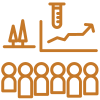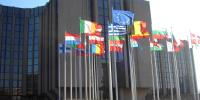
GFAR is about dialogue and partnership. We are a Global Forum whose reach spans national research systems across the world, and encompasses a broad range of stakeholders in agricultural research, education, extension and enterprise. As a Global Forum we come together to define research and innovation priorities and to take collective action on important development issues such as agro-biodiversity, farmers’ rights, nutrition and climate change. Fostering effective partnerships between national, regional and international agricultural innovation systems is a key focus, and aligning international research processes with countries' development needs.
Advocating for Farmers’ Rights
Plant genetic resources are the raw material for crop genetic improvement, food and nutrition security. Their conservation and management are essential and depend on the rights of farmers, especially those in the centers of origin and diversity, to save, use, exchange and sell farm-saved seeds and propagating material. Farmers must be enabled to safeguard their traditional knowledge, innovations and practices and participate in decision-making in order to benefit from the use of seeds and knowledge. Rural development policies and practices do not always reflect the interests, aspirations and rights of smallholder farmers, despite the fact that they are the main beneficiaries of agricultural and rural development and are themselves the source of innovation in sustaining rural environments and agricultural resources. National governments are obliged to implement Farmers’ Rights, but minimal progress has been done.
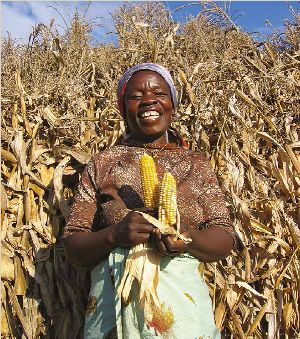 The Global Forum and the International Treaty on Plant Genetic Resources for Food and Agriculture have joined efforts in an exciting new capacity development programme to help countries implement Farmers’ Rights in practice, to the benefit of family farmers and indigenous communities in developing countries around the world.
The Global Forum and the International Treaty on Plant Genetic Resources for Food and Agriculture have joined efforts in an exciting new capacity development programme to help countries implement Farmers’ Rights in practice, to the benefit of family farmers and indigenous communities in developing countries around the world.
The Joint Capacity Building Programme on the Implementation of Farmers’ Rights was agreed by the Governing Body of the International Treaty at its Sixth Session in October 2015, as a contribution for the development of capacity of Contracting Parties and relevant stakeholders to implement Farmers’ Rights. The Governing Body requested the Treaty Secretariat to launch and implement a Joint Capacity Building Programme with GFAR and other relevant organizations, as set out in Article 9 of the International Treaty.
Partners of the Joint Capacity Building Programme on Farmers’ Rights include the MS Swaminathan Research Foundation, la Sociedad Peruana de Derecho Ambiental, the Economic Research Services of Pakistan, and GEF Small Grants Programme/UNDP.
Through national collective actions, activities have taken place to increase awareness, develop capacity and improve the implementation of Farmers’ Rights in developing countries, including:
| National meetings on Farmers’ Rights | Capacity-Building Materials | Draft seed policies and laws |
|---|
Further actions
The Global Forum actively supports the inclusion of Farmers’ Rights in international policies and research programs. Our work has already achieved considerable impact, in influencing Intellectual Assets principles of CGIAR to be more inclusive of Farmers’ Rights. The document “Achieving Farmers’ Rights in Practice. Mechanisms by which Centres of the CGIAR Consortium can Support the Development of Appropriate Policies and Procedures for the Recognition and Promotion of Farmers’ Rights” was submitted to the CGIAR Consortium and taken into consideration for the development of the CGIAR Principles on the Management of Intellectual Property Assets Approved.
This work in policy reform is delivered in direct partnership with the International Treaty on Plant Genetic Resources for Food and Agriculture, the Commission on Genetic Resources for Food and Agriculture and a wide range of farmers’ organizations and national and regional bodies.
Farmers’ Rights are interconnected with the conservation and sustainable use of plant genetic resources for food and agriculture. This link was recognized by the Governing Body of the International Treaty on Plant Genetic Resources for Food and Agriculture since 2011. In 2015, the Governing Body approved as a supportive initiative of the Programme of Work on Sustainable Use of Plant Genetic Resources for Food and Agriculture training and capacity building on Farmers’ Rights and sustainable use, which includes the Joint Capacity Building Programme on the Implementation of Farmers’ Rights.
In addition, through the Diversity for Development Alliance, a wide range of GFAR stakeholders are promoting the sustainable development and use of under-utilized species. This work also cross-links with the multi-stakeholder Global Horticulture Initiative, promoting research and development of vital, horticultural crops. The Global Forum has been a principal supporter of GlobalHort since its inception.
Linking Science With Society
GFAR provides the essential link between the international agricultural research system of the CGIAR – and stakeholders from across the agricultural research and innovation sector, particularly the private sector, civil society and farmers’ organizations.
The CGIAR Consortium’s 15 Research Centers generate and disseminate knowledge, technologies, and policies for agricultural development through the CGIAR Research Programs (CRPs). CGIAR is responsible for its international research outputs and the Global Forum works to help ensure support for national partners to translate these into development impacts relevant to resource-poor smallholders.
The Global Forum has worked closely with CGIAR on the reform of its research system and the development and review of its Strategy and Results Framework . The Global Forum collaborates with the CGIAR Consortium and the CGIAR Fund Council on planning and programming, and help to build inclusive and equitable partnership between our constituencies and the CRPs. Together the aim is to create more effective pathways to turn research into results and to find the best way to scale-out responsibilities into sustainable and nationally-owned systems.
The biennial Global Conferences on Agricultural Research for Development (GCARD) , organized by GFAR in partnership with the CGIAR Consortium, is a critical opportunity for international science to engage with public, private and civil society stakeholders on priorities and programs. As a member of the CGIAR Consortium Partnership Committee, the Global Forum also uses its processes at global, regional and national levels to engage the agricultural research for development community in dialogue on key issues in science and research.
Fostering Effective Partnerships
The Global Forum supported the establishment of the Association of International Research and Development Centers for Agriculture (AIRCA) in 2012. AIRCA’s mission is “Putting research into use by strengthening capacities for sustainable improvements to incomes, food and nutrition security in healthy landscapes”. Through sharing AIRCA’s knowledge and experience in creating healthy landscapes, the group seeks to work together for greater impact and raise awareness of the benefits of landscape approaches among potential stakeholders in the agricultural and environmental sectors. In 2013 AIRCA released a white paper offering recommendations for transforming rural livelihoods in the developing world at the “landscape level.”
Enhancing Bio-Diversity
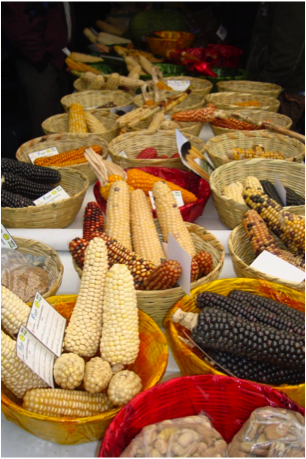 The Global Forum brings together diverse stakeholders in global partnership programs, or innovation platforms, to address key development issues such as agro-biodiversity. Through the Diversity for Development initiative, partners in GFAR are working to address the issue of sustainable use of plant genetic resources and associated issues of reconciling farmers rights and plant variety rights. This work also has cross-links to the multi-stakeholder Global Horticulture Initiative (GlobalHort) promoting research and development of vital, yet neglected, horticultural crops. GFAR has been a principal supporter of GlobalHort since its inception. The Global Forum also works in partnership with the International Treaty on Plant Genetic Resources for Food and Agriculture, the Commission on Genetic Resources for Food and Agriculture and with a wide range of farmers’ organizations and national and regional bodies.
The Global Forum brings together diverse stakeholders in global partnership programs, or innovation platforms, to address key development issues such as agro-biodiversity. Through the Diversity for Development initiative, partners in GFAR are working to address the issue of sustainable use of plant genetic resources and associated issues of reconciling farmers rights and plant variety rights. This work also has cross-links to the multi-stakeholder Global Horticulture Initiative (GlobalHort) promoting research and development of vital, yet neglected, horticultural crops. GFAR has been a principal supporter of GlobalHort since its inception. The Global Forum also works in partnership with the International Treaty on Plant Genetic Resources for Food and Agriculture, the Commission on Genetic Resources for Food and Agriculture and with a wide range of farmers’ organizations and national and regional bodies.
Focus on Global Nutrition
The international development community (FAO, The World Bank, UNICEF, WFP, WHO) is investing considerable resources to meet the challenge of under nutrition through initiatives such as the High Level Task Force on Global Food Security and the Scaling Up Nutrition (SUN) Movement. The International Conference on Nutrition (ICN2), resulted in a flexible policy framework to address major nutrition challenges and identify priorities for enhanced international cooperation on nutrition. WFP and FAO are leading the global thematic consultation on Food and Nutrition Security in the post-2015 Development Agenda.
The CGIAR with a specialized program on Agriculture for Improved Nutrition and Health (A4NH) and international NGOs and regional organizations operating in the context of GFAR are also devoting increased attention to investment in this agenda. GFAR is working to ensure these initiatives in the agricultural sector, and other research investments, are more co-ordinated and cohesive, and are focussed on delivering rapid results to poor communities. GFAR is also advocating for policy makers to shift their traditional focus on productivity and production to address nutrition and health challenges, and for a more coordinated way to address these issues within new inter-organizations and inter-disciplinary programs.
At the Household Nutrition Security session at GCARD2 in 2012, for instance, participants discussed how agriculture could better contribute to improving human health and nutrition, and how health and nutrition could contribute to a more productive and sustainable agricultural system. The Global Forum also participated in the Expert Preparatory meeting organized by FAO (2013) for the International Conference on Nutrition (ICN2), and with the Gender in Agriculture Partnership (GAP) , provided the framing document for the gender/nutrition nexus for ICN2.
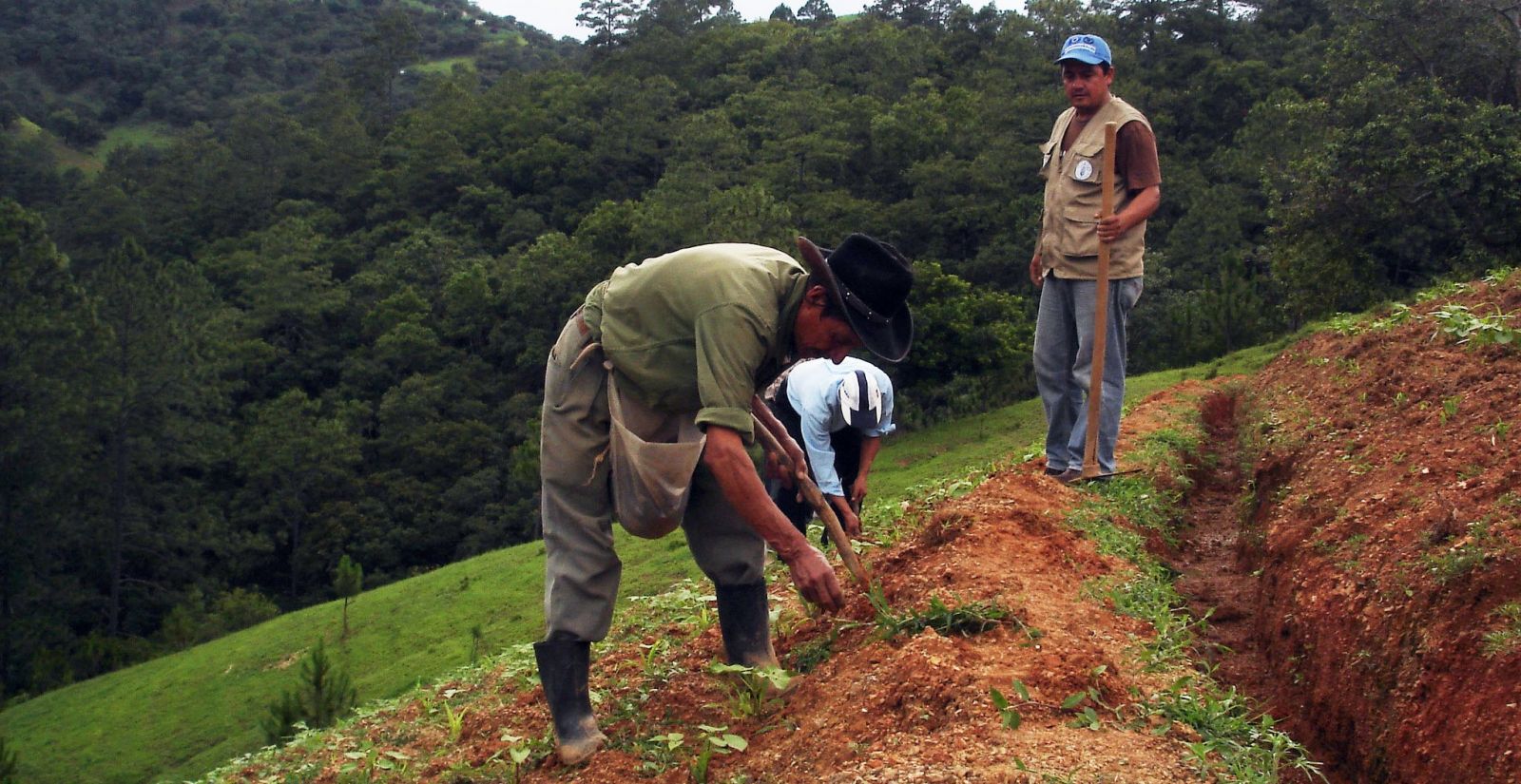
Coherent Action on Climate Change
The Global Forum, with international expert partners including the CGIAR, the Global Donor Platform for Rural Development, FAO, IFAD, international farmers organizations, Regional Fora and the Earth System Science Partnership, has been at the forefront of actions to raise awareness of the potential of agricultural systems in mitigating and adapting to climate change.
The Global Forum's support has enabled farmer and civil society representatives from around the world to take part in high-level processes – including the UN Framework Convention on Climate Change (UNFCCC) meetings. The Global Forum has also directly sponsored and helped enable Regional Fora to develop climate change strategies for agri-food research and innovation-related issues in Asia-Pacific region in the Central and West Asia/North Africa region.
The Global Forum continues to work across a wide range of institutions to strengthen international research actions on climate change and agriculture, developing required capacities, helping farmers to better manage risks, and linking research with societal and development needs.
The Global Forum has been instrumental in the establishment of the Global Alliance for Climate-Smart Agriculture (GACSA), by helping to catalyze partners’ involvement in the interim Action Groups, alongside CCAFS, FAO, IFAD, WFP and WMO. Through regional workshops and national events, the Global Forum facilitates the input of the research and development community, regional farmers’ organisations, private sector and academia. GFAR has advocated specifically for the empowerment of farmers organizations to cope with climate change through foresight activities, and this is now part of the GACSA Action Plan.
For an interesting and thought-provoking talk on climate change given at the June 2015 EAT Forum, view the presentation by Prof. Hans Joachim Schellnhuber "A journey across time and space: linking climate change and food security".





